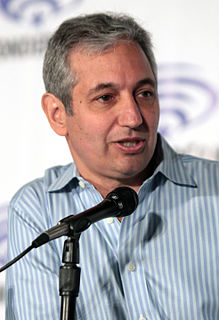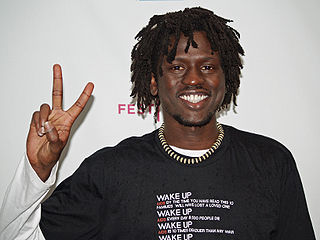A Quote by H. L. Mencken
The idea that the sole aim of punishment is to prevent crime is obviously grounded upon the theory that crime can be prevented, which is almost as dubious as the notion that poverty can be prevented.
Related Quotes
The best crime stories are always about the crime and its consequences - you know, 'Crime And Punishment' is the classic. Where you have the crime, and its consequences are the story, but considering the crime and the consequences makes you think about the society in which the crime takes place, if you see what I mean.
I am convinced that imprisonment is a way of pretending to solve the problem of crime. It does nothing for the victims of crime, but perpetuates the idea of retribution, thus maintaining the endless cycle of violence in our culture. It is a cruel and useless substitute for the elimination of those conditions--poverty, unemployment, homelessness, desperation, racism, greed--which are at the root of most punished crime. The crimes of the rich and powerful go mostly unpunished.
Governments have tried to stop crime through punishment throughout the ages, but crime continued in the past punishment remains. Crime can only be stopped through a preventive approach in the schools. You teach the students Transcendental Meditation, and right away they'll begin using their full brain physiology sensible and they will not get sidetracked into wrong things.
Crimes were committed to punish crimes, and crimes were committed to prevent crimes. The world has been filled with prisons and dungeons, with chains and whips, with crosses and gibbets, with thumbscrews and racks, with hangmen and heads-men — and yet these frightful means and instrumentalities have committed far more crimes than they have prevented.... Ignorance, filth, and poverty are the missionaries of crime. As long as dishonorable success outranks honest effort — as long as society bows and cringes before the great thieves, there will be little ones enough to fill the jails.
I think there is a lot of crime caused by desperation, and it doesn't mean that people commit crime because they're poor, but certainly a lot of people who are poor commit crime and they might not if they weren't poor. You understand the difference there? That's not news, but it comes up when I hear people say poverty doesn't affect crime - that crime is still going down in America even though the economy is bad.
Indeed, what is startling about the notion of a victimless crime is that even when the behavior in question is genuinely victimless, its criminality is still affirmed by those who are eager to punish it. It is in such cases that the true genius lurking behind many of our laws stands revealed. The idea of a victimless crime is nothing more than a judicial reprise of the Christian notion of sin.





































